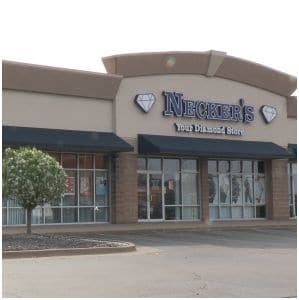
(Advertiser Success Story) Necker’s Jewelers opened in 1893. The owner was a German immigrant who sold the business to the parents of Dave and DJ Necker in 1952. It was then sold to Dave and DJ in 1990. There are now two Necker’s Jewelry locations. The original location in DeWitt, Iowa, the other store is in Davenport, Iowa.
The DeWitt location does three times the national average of independent jewelry stores. The store in Davenport does close to 12 times the national average. A big reason for that is their consistent use of radio. In this week’s advertiser success story we spoke with owner Dave Necker, Director Of Marketing for Necker’s, Abigail Rock, and the AE that brought us this story, iHeartMedia Senior Marketing Consultant Jonna Schuler.
Radio Ink: Tell us how you started the relationship with the radio station.
Dave: We came to the radio station, but had gone through multiple reps. I asked who the best was and they said Jonna Schuler. I said that is who I want, it’s Jonna or no deal.
Jonna: I will have 28 years at the radio group in May of this year. I have been with Necker’s 25 of the 28 years.
Radio Ink: What was your original impression of radio? Was it a good experience from the beginning?
Dave: You don’t know what you don’t know, and when it comes to advertising there was a lot I did not know. Marketing is one of those ventures that seemed to change often. I would say my first experience with radio was challenging because I cut my own commercials and I did not like my voice so it was very stressful to cut the commercials.
Jonna: Dave cut the commercials himself and actually did that for many years. He got better over time.
Dave: That was back when you had to cut and splice. I always felt bad for the girl who had to splice all my spots together just to get a 30-second ad. Advertising is a moving target and the learning curve was high. We stayed with it and believed in it. It is definitely part of our success. When you start creating a relationship with a sales rep and then they leave, you have to start all over again and it’s challenging. Once I got with Jonna that helped a lot.

Radio Ink: Tell us about your philosophy on marketing and advertising.
Dave: Our philosophy is to connect with as many consumers as possible. We like to do that through our stories, pricing, and establishing a relationship. I have always felt staying in contact with our mailing list is important and so direct mail was also a focus. I then used electronic media to bring in new customers.
Abby: Obviously that has changed over the years, the big holidays for our industry is when we do our bigger pushes. We try to stay on for branding purposes with top-of-mind year-round sponsorships. Radio is one of the few forms of media that we are consistent on year round. The number one thing I hear when I’m out and about is people heard us on the radio, especially since we have Studio Naming Rights sponsorships for the top two stations in the market. That’s what I get the most feedback on is “I heard about the Hearts on Fire Studio.”
Jonna: We have seven radio stations and they have the Studio Naming Rights for three, including Country, Top 40, and our Classic Hits station. They reach a broad audience with Country, a young audience with Top 40, and they reach men with Classic Hits.
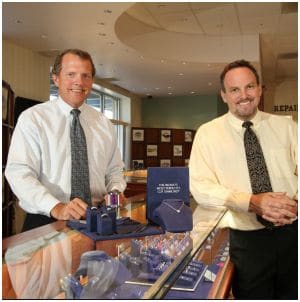
Radio Ink: Dave was recording the spots but it sounds like he doesn’t anymore. What’s the creative now?
Addy: We use station talent now. In my mind, even though we are local and have been around for a long time, because of the quality and quantity of our advertising, people don’t realize we are a locally owned business, which was shocking to us. People would say, “We thought you were a bigger store.”
Jonna: I would say what comes to my mind when Dave advertises on radio is don’t dabble, dominate, and that’s what they do. They have three studio sponsorships; they sponsor all of our ultimate contests, market-wide, for all seven stations. They are risk-takers. They opened a giant store on the main drag, and they are willing to take suggestions. When I started with Dave all the commercials were 60 seconds long, droning-on commercials. I suggested doing something different. When they push big events they switch to 15-second ads, and rather than run horizontally across a week, which is traditional, they run vertically throughout the day. They dominate the day with one commercial per hour for 8 to 10 hours a day leading up to the big event.
Abby: The first was for Dave’s 50th birthday. It worked so well we changed our advertising strategy altogether to do that until it doesn’t work as well. You’re guaranteed to hit people multiple times a day in the car or wherever they are listening.
Jonna: The day he turned 50 we ran one commercial an hour on every station in our group and his phone blew up.
Abby: What a way to test if something works.
Dave: They didn’t tell me it was going on so I couldn’t figure out how these people knew it was my birthday.
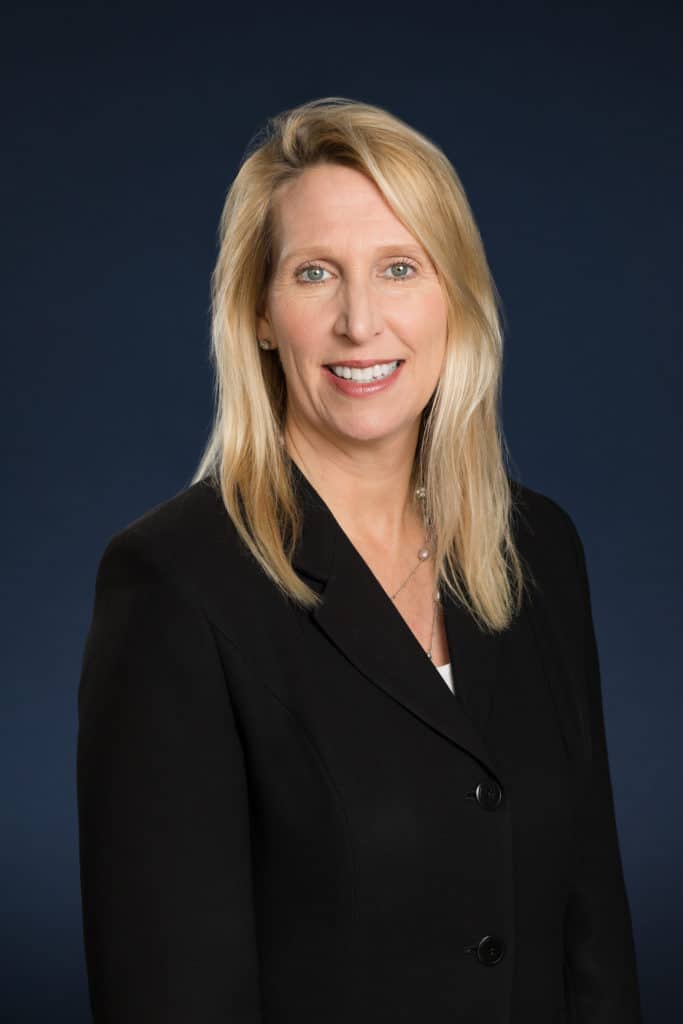
Jonna: From that point on they adopted the philosophy of don’t dabble, dominate, and flipped to shorter-length commercials to really push their message. We also roadblock almost every morning DJ with endorsements. If it’s a team, they use both personalities. It keeps any competitive jewelry store from doing endorsements by those DJs. They can still run advertisements in the day part, but most of the live DJs during their live shows do endorsements for Necker’s Jewelers.
Abby: Dave does not like cutting the spots and it is kind of a painful process. I think with as much as we lean on endorsements and the partnerships with the local talent here, I like having the local talent cut our spots. It’s a recognizable voice and hopefully triggers something in our listeners’ mind like, “Oh that’s Todd Alan cutting the commercials.” It gives the local feel that maybe our TV spots or giant location doesn’t give it, but it feels more personal.
Jonna: We have a DJ that also does the voiceover for the TV commercials. There is a lot of congruency between our personalities and when she does TV.
Radio Ink: How do you know radio is working for you?
Abby: There are a couple of times they like to throw a big sale or promotion to start tomorrow and I don’t have time to get digital creative made or a TV spot. It’s those times when I have leaned on radio. It was the only option to throw something together quickly, which is a perk of radio. It’s a great way to take a pulse on what goes on when we don’t have TV or newspaper etc. If it worked well then it had to be radio. I started toying with changing up the messaging here and there when we’re not talking about holiday season. We’ve started talking about certain brands on the radio, or things we’re doing just on radio, which may be pushing a new watch line or financing. I switched a lot of our radio creative since we have a lot of the 5-second or 15-second spots to use each month. We focused on financing. We sat down with our accountant last year and looked at the difference in how many people did financing versus lay away and where all the numbers fell and there was a substantial difference in financing because of our advertising.
Dave: We also measure door counts on a daily basis and year to year from promotion to promotion to see the effectiveness of the marketing
Abby: I keep notes to see what I did different so I can look back and know why one year was up and another down.
Radio Ink: What would like to see the radio industry do better?
Dave: Get the staff/employees at the radio station trained in what works and what doesn’t and teach that to the advertiser. It’s such a moving target. Frequency and reach is a key component to marketing and putting that together. Instead of just going out and selling packages as a quick way to generate revenue, actually partner with the business to help them grow. There are a lot of opinions of what works but staying consistent, getting frequency and reach is important. The education has to come from the radio stations and filter down to the sales team, then they have to teach and educate the customers.
Abby: I know some of the things that worked well for me versus the other sales reps I went up against when I was working at radio stations. There were a lot of times I met with people that bought into the idea of radio but others just wanted to hear their name on their favorite station even though that station might not be the right target market. They need to be pointed in the right direction to hit the right people. If it is branding, not having the same message on a Classic Rock station as you would on a Top 40 station. It helps send a different message to a different target. It’s educating all the way down so the customers feel like they have someone they can trust. I still have clients that will call me every now and then from when I worked in radio to ask me advice.
Dave: It can start with deciding what your budget is going to be based on the industry trends. Then breaking it down into a weekly basis and understanding the industry they are trying to help. We set a budget which is twice the industry average. The way we created the formula for our budget was based on exposure and we put our rents in that exposure as different locations have higher rents. It’s breaking it down and understanding how to get your frequency and reach. If I want a 10% increase in my business I would have to break out what our average ticket is. It could be as simple as I only need 500 new customers a year or 200. What radio station doesn’t reach at least 200 people? The shotgun approach of sending messages all the way out there isn’t effective because you can’t get your frequency and reach. Taking the philosophy of what works and teaching it to the consumers. In 35 years I have not seen the education come from most of the people who should be teaching it. It is something I had to learn and go to different companies and industries. Radio has turnover,. which is something you have to figure out how to manage. I would have no problems if I got out of the jewelry industry being able to help and develop other businesses with their marketing programs.
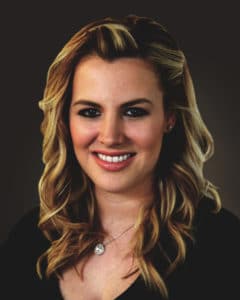
Radio Ink: Tell us how social media, the Internet, and search plays into your plan. And, do you use Pandora?
Abby: We do our own page and manage that in-house. We have about 45,000 followers on Facebook. Now it’s Facebook and Instagram. We do have Pinterest for wedding stuff. We also partner with some of the radio stations when we do the contests. We do a big event every year called the Diamond Dash where we partner with the two big stations that we are the studio sponsors of. Three years ago, I really overhauled what we were doing digitally and tried Pandora. At that time they had pretty high minimum buy-in’s and you had to run for three months at a time. They weren’t the easiest to work with. I assume some of this has changed but I didn’t love Pandora’s algorithms or how that worked. My Pandora never adapted when I was moving around the country, so when I was living in Texas or California, I was still getting ads from the Quad Cities, which wasn’t helpful. I want to make sure if I’m paying money to advertise that it hits the right people in the right area. Pandora has a lot of competitors now. We are in a more traditional market that’s a little slower to make changes. I remember when I was working in radio the sky was falling etc. But that really hasn’t held true in this area. We are in an area where I have to keep putting money and effort and time into digital advertising to hunt down those engagement ring shoppers or whatever they’re shopping for. I have to be in the digital advertising hemisphere but we don’t live in a place that traditional media advertising isn’t working anymore. I can’t say we can cut back on radio and push more towards digital. I can’t take things away maybe other than newspaper. It is hard for me to say when I will change TV, radio and put more there because it still works for us. When we meet with other jewelers across the country some of them don’t have a belief in radio and maybe that is because they don’t have the right partner, but it works well for us.
Radio Ink: What advice do you have for other advertisers considering radio?
Dave: It all works if you break it down to what you need. If you need 200 to 2000 new customers a year, the medium works. Figure out your budget and equate that to frequency and reach. It doesn’t have to be the top station in the market, just one that you can dominate and own.
Abby: If someone thinks radio is a dying media but is willing to take a risk it is a cheaper way to see how much frequency you can get compared to any other form of advertising out there. Try it and see what happens. People are not always willing to look at every aspect. They may have tried it and it didn’t work but that may be because the message was wrong or the target was not correct.
Dave: Humans want immediate gratification and there seems to be a bailout period for attempts at trying. I would say when you lock into something, don’t bail out after one or two months. Stick with it 3 to 6 months to see how it goes. It takes a while to get that wheel turning.
Do you have a sales success story you’re proud of? Help us help the industry tell the story about the tremendous power of radio. We’d love to write about your success story in the next issue of Radio Ink magazine. Send all the details to[email protected].





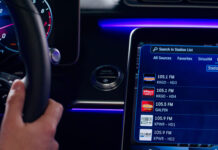



As Mike Myers’ Austin Powers was wont to say, “Groovy, baby!”
Now, let’s hear the spots.